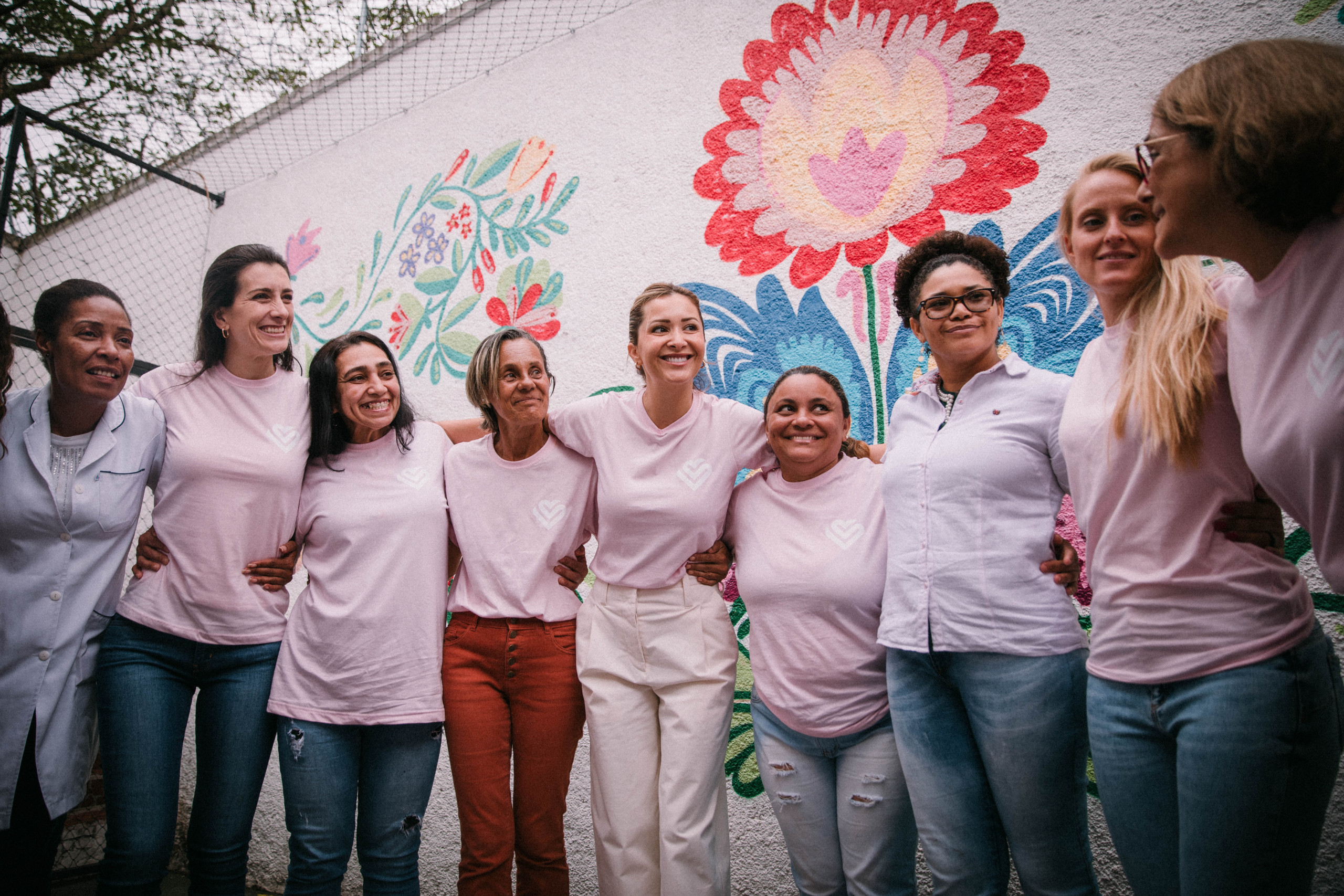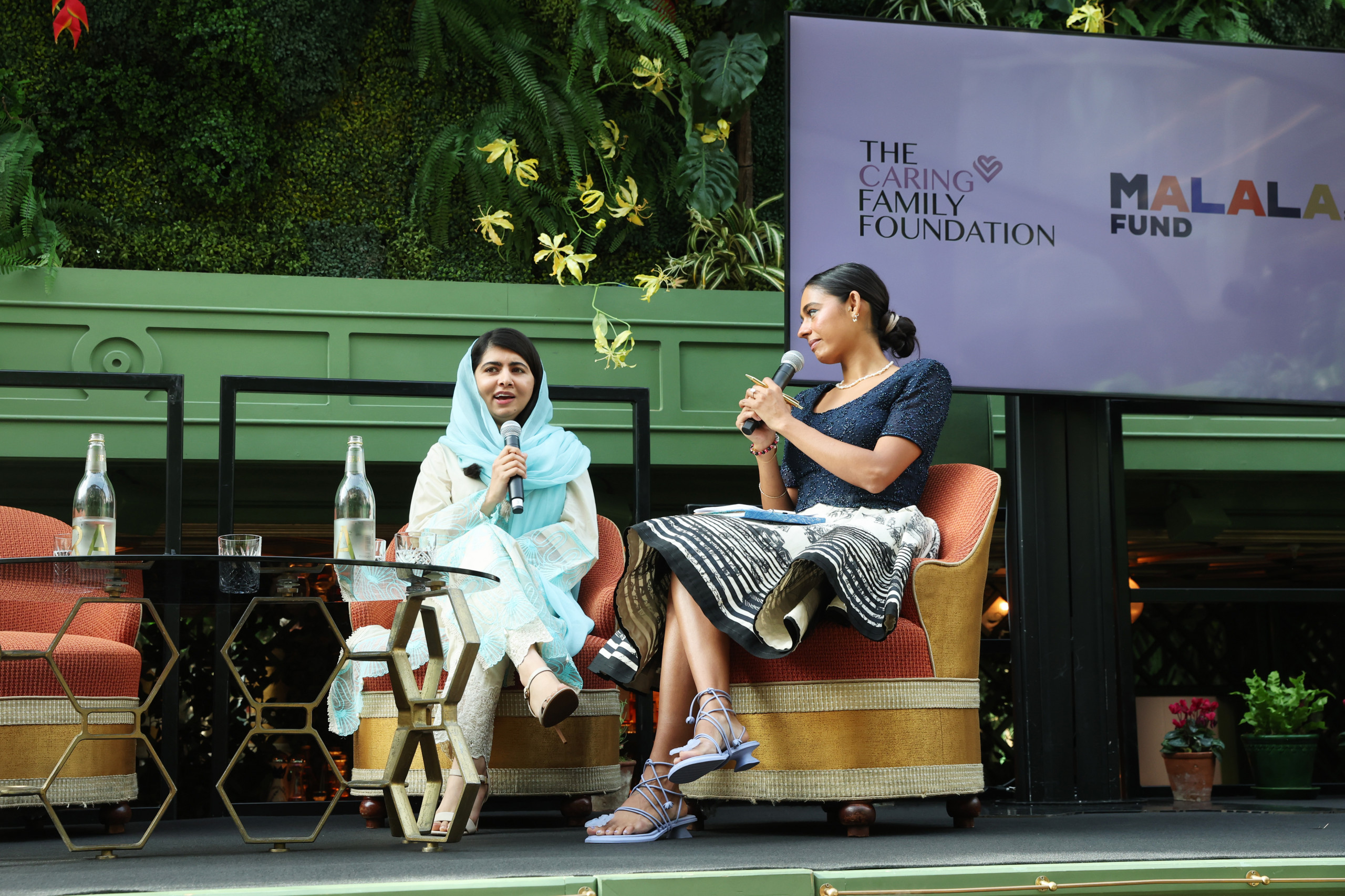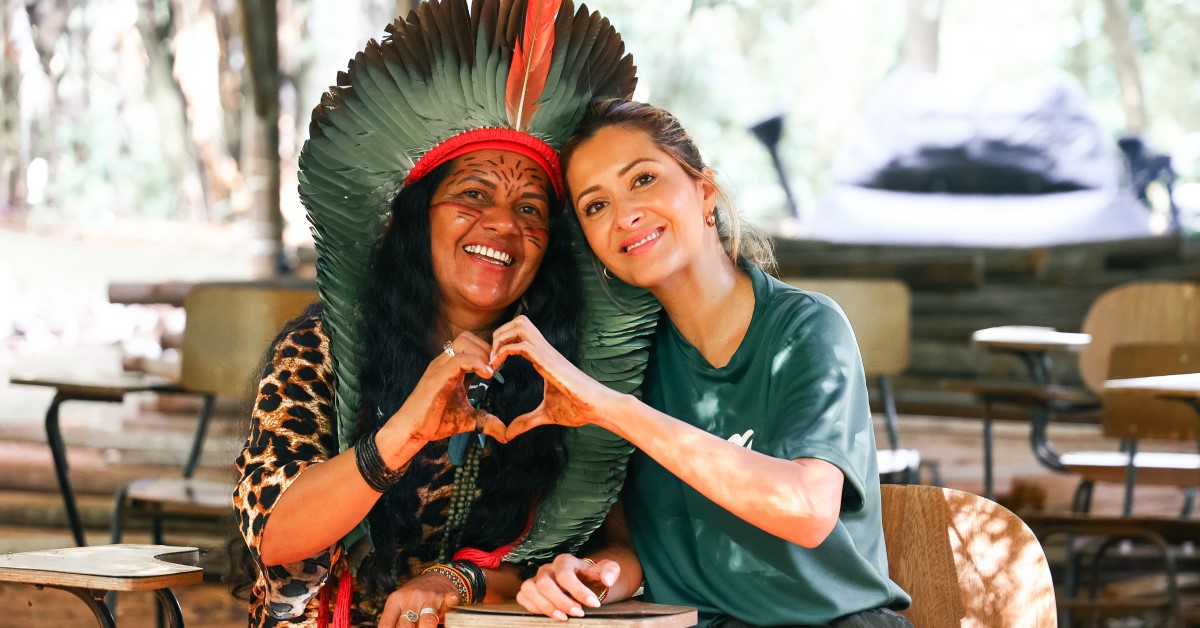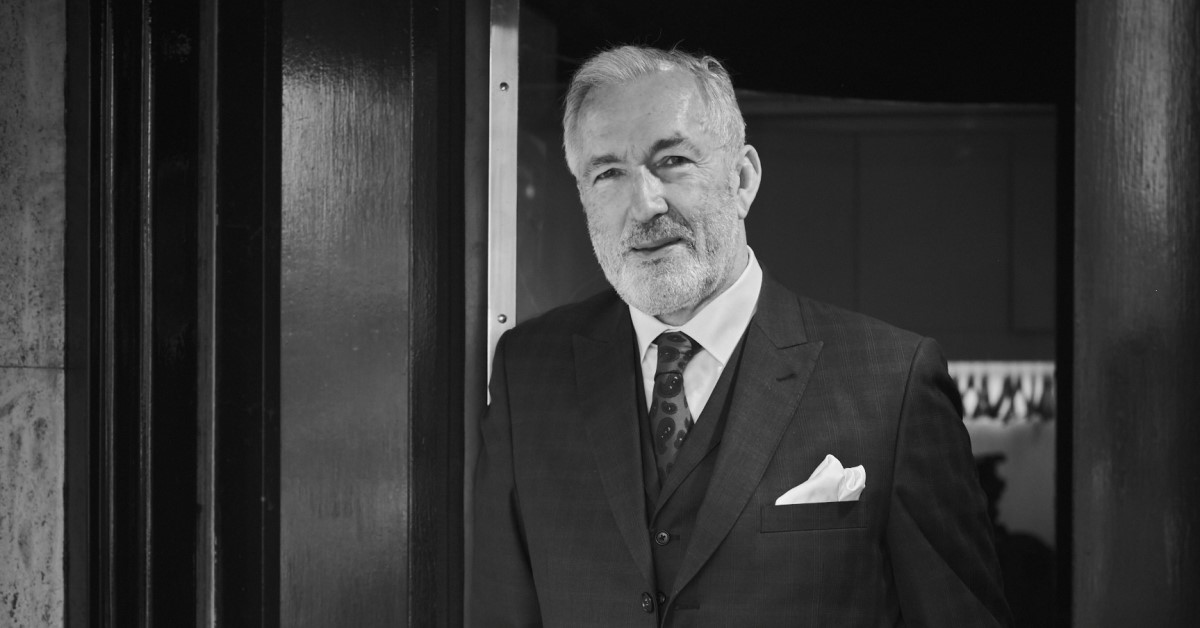Ahead of International Women’s Day, we speak to Patricia Caring and Katie Beeching of the Caring Family Foundation, about supporting women at home and abroad, setting up domestic abuse centres and inspiring inclusion
Words: Sophia Charalambous
PATRICIA CARING, CO-CHAIR OF THE BIRLEY CLUBS AND CO-FOUNDER OF THE CARING FAMILY FOUNDATION
What can you tell us about the domestic abuse centre?
When I launched the domestic abuse centre in Brazil, on one of my first visits, I met women who had suffered mental and physical abuse, some of them for years and most of their entire lives. I was deeply moved by these women and how they could face the world when they are facing sadness and brutality. It sparked an instant connection with them and I wanted to embrace and support them.
Over the past few years, I’ve seen them develop so much and when I returned in 2023, they were stronger and more confident. The transformation was so clear to see, and I cannot tell you how proud of them I am. A lot of them now find themselves back in the workforce and some of them have even opened their own business.
They can now look at themselves in the mirror, have the chance to support their children and care for themselves. Many of them took the very hard decision to leave their abuser and create a life for themselves, so I can proudly say that the Caring Family Foundation has transformed many lives and for me, it’s one of the biggest achievements that will remain with me forever.
Is the work in Brazil going as well as the work in the UK?
I would say that when it comes to these countries, they both need a lot of help. It is shocking to learn about the levels of poverty in the UK and how many children suffer from food insecurity and in Brazil, it is much more visible. In a way, they both have the same needs.
When it comes to domestic abuse, we know that no matter what part of the world you are in, women are still experiencing this, though in some areas like the UK, it can be hidden and it’s more widespread than we realise. That’s why the dream of opening a domestic abuse centre in the UK is vital so that we can help to transform women’s lives in the same way we are doing in Brazil. Even when it comes to reforestation, there are places in the UK that lack support and funding – it’s not just limited to the big rainforests in the world, so we are also looking at ways we can raise awareness.
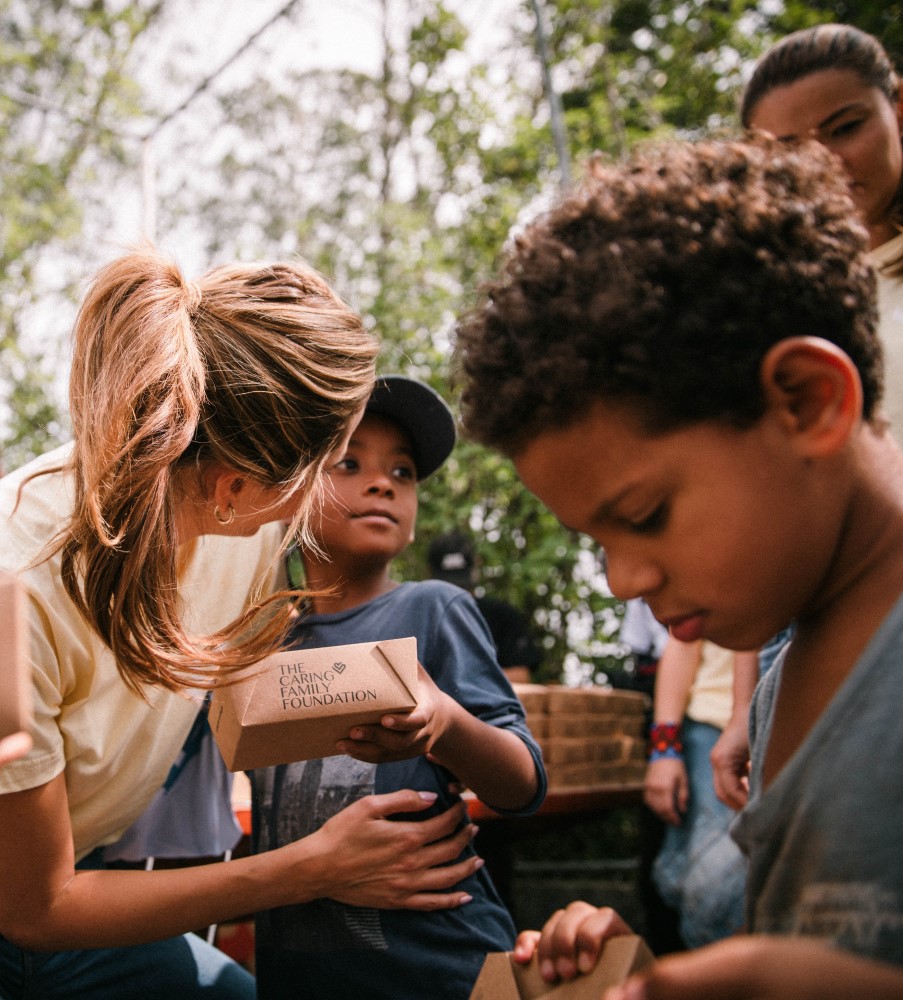
What is Annabel’s doing this year for International Women’s Day?
With the theme of this year in mind, we are looking at how to inspire inclusion. Annabel’s and the Caring Family Foundation will host an incredible panel who will talk about how when we inspire others to understand and value women’s inclusion, we forge a better world. It doesn’t matter about your social status or background; we need to embrace and support each other and we want to focus on making this a positive and impactful message for all.
KATIE BEECHING, DIRECTOR OF THE CARING FAMILY FOUNDATION
Why is it important to support women?
As a women and children’s charity, women are at the heart of all that we do at the Caring Family Foundation.
Having worked across multiple sectors and countries, it is clear to me that women make the world go round.
They are the backbone of families and communities, they do so much with so little and they are essential to the development of our children.
This is why we at the Caring Family Foundation focus our efforts on female leaders, formal and informal, who transform communities, from the Amazon and São Paulo in Brazil to Westminster and Tower Hamlets in London. We strive to work with remarkable women, transforming lives, and it is an honour to work alongside them to co-produce and implement life-changing projects.
What are your thoughts on the word philanthropy?
Richard and Patricia had been philanthropists long before setting up the Caring Family Foundation and under their stewardship, the foundation embodies the spirit of taking action in order to promote the welfare of others.
However, for me it is the way we work that makes me most proud of the foundation and the founders’ philanthropy.
In November we met a woman who had just tried to end her life due to the domestic abuse she was suffering.
We stayed in touch from the UK, while our centre in Brazil continued to provide social, legal and psychological support.
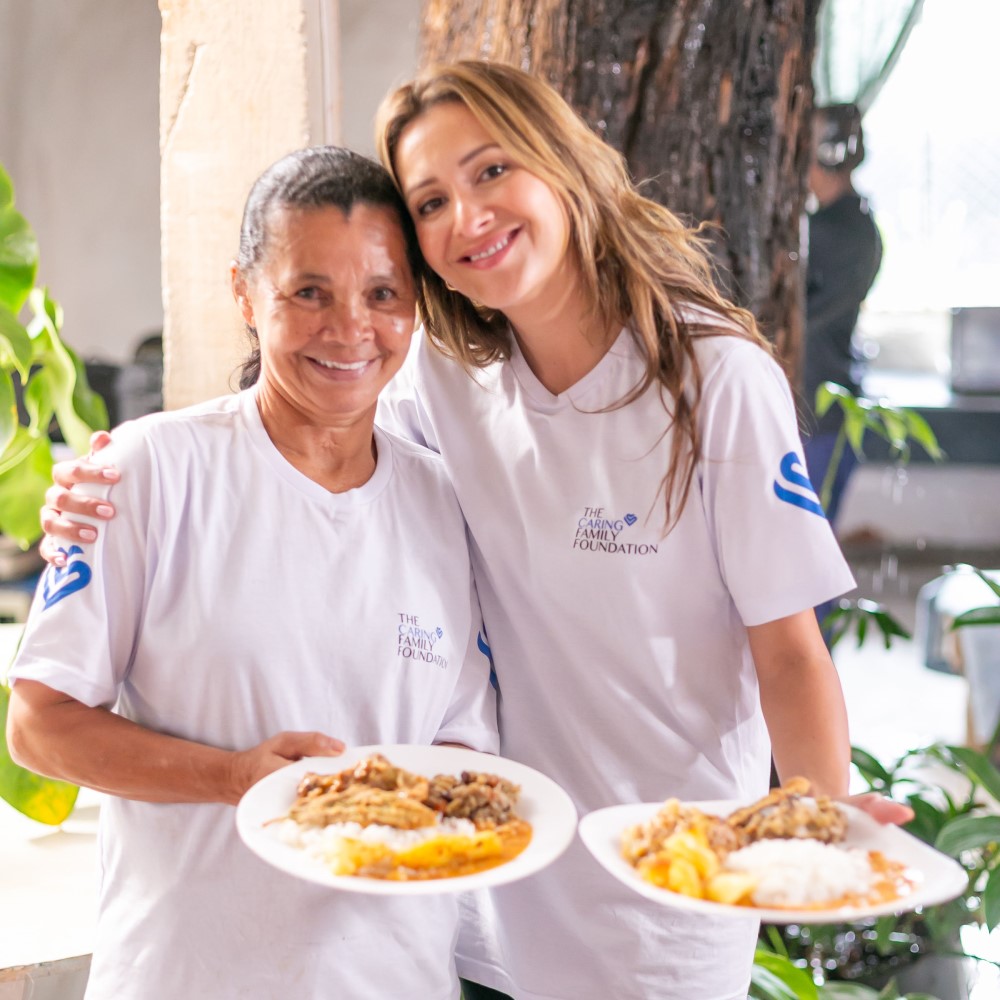
When we met her again last week in Brazil, she had tattooed the foundation’s logo on her arm as a sign of her gratitude for the Caring Family Foundation and in her words, how we had “saved her life”. Whether or not we call our work philanthropy, this is why the foundation does what it does. Whether tackling poverty, domestic abuse or deforestation, I would encourage anyone to take action for causes that are close to their hearts.
